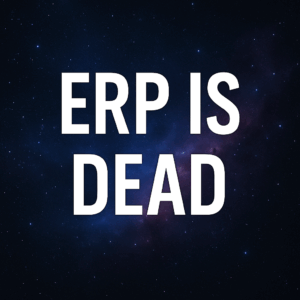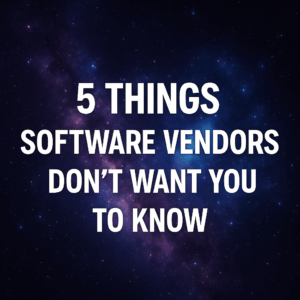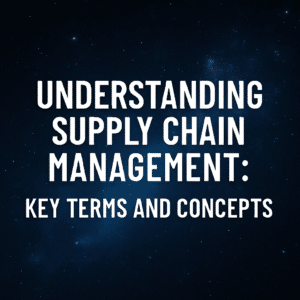Supply chain management is one of the hottest disciplines in the business world today, and there’s a lot we can learn from some of the leading supply chains in the industry. But what are those leading supply chains, and which ones can we learn from?
When we’re trying to learn about what makes a supply chain effective and how to navigate supply chain management here in the 2020s, it’s helpful to look at some of the leading organizations throughout the world that have built very robust, highly successful, and highly effective supply chains.
So, what we want to do today is provide a top 10 countdown of the top 10 supply chains that you should be familiar with as you look for ways to incorporate those best practices into your supply chain.
![Top 10 Supply Chains in the World [Lessons from Amazon, Wal-Mart, Alibaba, McDonalds and others] 1 YouTube player](https://i.ytimg.com/vi/dHJ35-iwbI0/maxresdefault.jpg)
Table of Contents
Toggle10. Schneider Electric
Schneider Electric is a very large global conglomerate that provides energy management solutions throughout the world. The reason Schneider is on our top 10 list is because they are in an industry that’s very complex. Energy management typically entails a complex supply chain, so that alone is a reason to celebrate the success of Schneider’s supply chain. But it’s also the fact that they’re a global organization. They operate in over 100 countries, and that requires a great amount of discipline as it relates to supply chain management. Another reason why Schneider is on our top 10 list is that they have a program that focuses on driving sustainability and innovation in the supply chain. This extends all the way to their suppliers, and basically, everyone that touches their supply chain is focused on sustainability and innovation. For all these reasons, that’s enough to land Schneider at number 10 on our list of top 10 supply chains.
9. Intel
Coming in at number nine is Intel. Intel is a chip manufacturer, as you may know, and they produce a very high volume of computer chips every year. The reason why they’re in the top 10 is that if you go back 10 years or so, back to 2012, Intel was experiencing a chip shortage. They were actually able to beef up production by building two manufacturing plants in the United States to help increase throughput, productivity, and production at a time when there were pretty severe chip shortages. During that time, they demonstrated that they could respond with their supply chain management and respond to changing macroeconomic and overall supplier trends to ensure that they had a supply chain that could survive into the future.
Not only that, but they also have a very forward-thinking supply chain that focuses on decreasing their carbon footprint and decreasing their impact on the environment. The sustainability of their supply chain is another reason why they’re in our top ten. Finally, another neat thing about Intel’s supply chain is that they have a corporate code of conduct that applies to all of their suppliers. They have over 9,000 tier 1 suppliers who are required to abide by this code of conduct to ensure corporate responsibility, impact to the climate, as well as overall diversity goals. For these reasons, Intel is number nine on our list of top 10 supply chains.
8. Alibaba
Coming in at number eight on our list is Alibaba, a global ecommerce retailer similar to Amazon that manages a complex supply chain with many different suppliers and customers worldwide. The fact that they have been able to scale and become a powerhouse internationally is a reflection of their effective supply chain management. In addition to being a retailer and distributor, Alibaba has also increased its manufacturing capabilities, further complicating their supply chain. However, they have managed this transition well and have even offered a supply chain as a service offering to customers, allowing them to track everything from procurement to transportation. For all these reasons, Alibaba is number eight on our list.
7. Walmart
Coming in at number seven is Walmart, the global retailer that transformed supply chain management in the 80s and 90s by changing the way people think about it. They drove down supplier costs by integrating their supply chain and providing innovation that other organizations had not seen before. More recently, Walmart has navigated the pandemic and the shift to omnichannel retail by enabling competencies that allow for curbside pickup, rethinking the way people shop and get their goods. They also have a strong focus on sustainability and corporate responsibility. For all these reasons, Walmart is number seven on our list.
6. Johnson & Johnson
Coming in at number six is Johnson & Johnson, the large consumer product organization. The reason they’re on our top ten list is that they’ve really pioneered this whole concept of data-driven supply chains. They’re almost obsessed with data analytics and gathering data throughout the supply chain. They use these various data points throughout the supply chain to create more accurate forecasts of consumer demand, as well as production and distribution needs. They really identify potential challenges and bottlenecks within the supply chain. This is a very innovative way of thinking that we hadn’t seen up until Johnson & Johnson, and that’s why they’re number six on our list.
5. Colgate Palmolive
Coming in at number five on our list is Colgate Palmolive, another consumer product powerhouse. The reason they’re on our top ten list is that, first of all, they manage a very complex supply chain effectively throughout the world. But secondly, they’re also very innovative in terms of some of the digital technologies they use to manage their supply chain. For example, the company has pioneered factory automation as well as advanced network modeling, which are two technologies that hadn’t been used previously, or at least not commonly used by supply chains. In addition, the company has deployed predictive maintenance models using that same data, as well as wireless sensors and artificial intelligence. They’re really on the leading edge of using some emerging technologies to enhance and optimize our supply chain, which is why it’s number five on our list of top ten supply chains.
4. McDonald’s
Coming in at number four on our list of top 10 supply chains is McDonald’s. The reason they’re in our top 10 list is that they’ve used technology in a way that a lot of organizations haven’t done well. Not only that, but they’ve integrated a supply chain that begins with farmers and the actual production of raw materials and ingredients into their food all the way through to the final product that’s delivered to their customers in the restaurants, and of course, everything in between. So, that alone is a very complex supply chain. It’s a very large and global supply chain, and for that reason, McDonald’s is number four on our top ten list of supply chains.
3. Unilever
Coming in at number three is Unilever. Unilever is interesting because they view supply chain management as a core competency and a competitive differentiator for their organization. Unilever’s supply chain begins at the manufacturing process and continues all the way through to end consumers. It’s heavily dependent on data, artificial intelligence, and other ways of anticipating consumer demand and producing and delivering to that consumer demand. If you just look at the sheer volume, complexity, and magnitude of their supply chain, it’s very impressive. The company manufactures and distributes 77,000 stock-keeping units or SKUs in over 190 countries, and they serve 2.5 billion customers every day, which is about a third of the world’s population. For all these reasons, Unilever is number three on our list of top 10 supply chains.
2. Apple
Coming in at number two on our list is Apple, one of the largest companies in the world. They produce complex products and distribute them globally. When you look at their iPhones, laptops, and other devices, there are thousands of materials that go into each product, making it a challenge to manage. However, they have created a nimble and adaptable supply chain by establishing strong relationships with suppliers, allowing them to respond quickly to changing customer demands. They have been able to ramp up production when there is a surge in demand, which is why they are number two on our list.
1. Amazon
Coming in at number one is Amazon, which may have the most complex supply chain in the world. They work with thousands of suppliers and sellers through their e-commerce platform, produce many of their products, and are opening their brick-and-mortar stores. They manage their entire distribution chain from the supplier source to their distribution centers and delivery to customers. Amazon has revolutionized the industry by offering same-day delivery, a feat that was unheard of a few years ago. They have forced the industry to rethink supply chains, and for this reason, they are number one on our list.
I hope this overview has given you a good idea of the top 10 supply chains in the market.
If you are looking to strategize an upcoming transformation or are looking at selecting an ERP system, we would love to give you some insights. Please contact me for more information eric.kimberling@thirdstage-consulting.com





